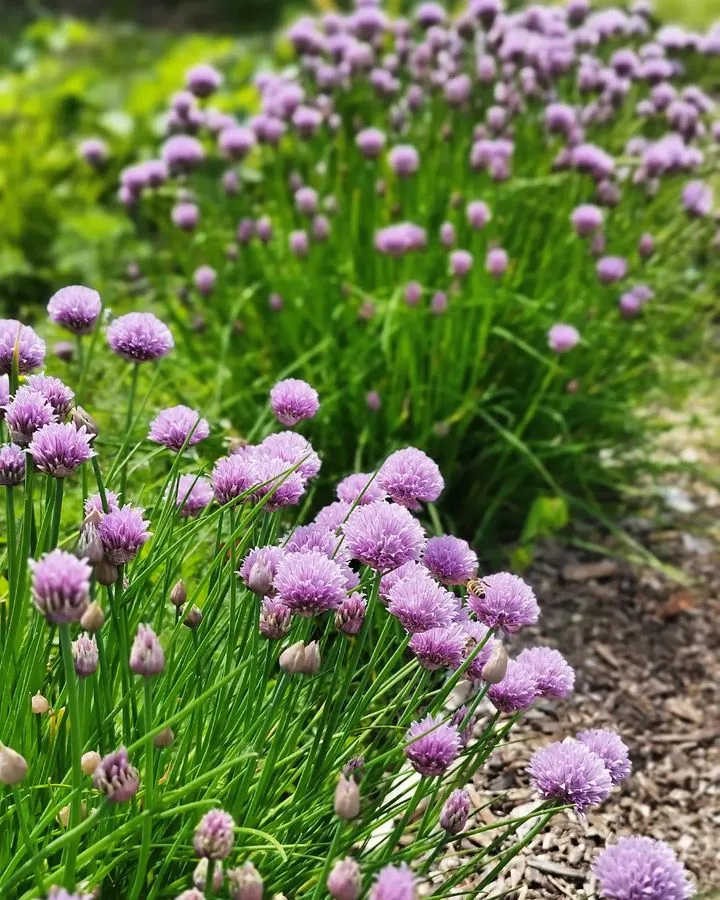Chives act as a delightful closure garnish in finger foods, but they are among the few useful herbs that spread noxiously, invading garden beds and ceasing the growth of companion plants!
Chives are native to the Allium family and are also known as the cousins of onion, garlic, and shallots.
So, read this entire article if you are considering adding Chives to your outdoor vegetable garden as an onion substitute.
Table of Contents Show
Where Do Chives Grow Best?
Chives are tall, green, slender plants growing about 12 inches tall, resembling garlic and onion stems.
This delicate plant bears beautiful pink flowers, even in pots, containers, or on the ground.
Chives need 6-8 hours of full sun and well-draining or porous soil rich in organic matter to thrive.

Also, weekly watering during the spring to summer or whenever the soil feels dry and monthly fertilizer will help in the perfect growth.
With different growing stages from seeds to harvest, Chives will take about 80 days to reach maturity.
Although it has a mild onion flavor, the Chives bulbs aren’t edible. But you can eat raw or cooked stems and use them as edible herbs.
How Fast Do Chives Spread?
Generally, Chives will mature 60 days after you sow the seeds, but you can shorten the time to 30 days by transplanting them.
The flowering of this perennial occurs in summer, and the plant reseeds itself as soon as the bloom dries.
So, Chives may spread rapidly with the help of their reseeding ability and take over your garden in no time.
However, they can also become extremely invasive and compete with other plants in your garden, making them unable to grow around.
Also, the spreading rate depends on growing conditions like soil fertility, water, and sunlight.
How To Prevent Chives From Spreading?
Unnecessary spreading can turn Chives into invasive plants in the garden only to halt the companion plants’ growth.
Besides the flowers, the underground bulb is also the reason behind spreading Chives in your garden.
Remove the bulb from the ground with a trowel to get rid of the Chives fully. To make it easy, make the ground wet before removing the bulb.
However, you can always prevent it from spreading using different ways.
- Grow Chives in a container to harvest them whenever needed and avoid spread.
- Deadhead the flowers before they mature to prevent reseeding.
- Divide the clumps every few years and replant them whenever you need.
- Place the metal barrier around the Chive’s bedding.
- Harvesting flowers before they mature will encourage lush foliage preventing unnecessary spread.
- Spray herbicides containing 2,4-D as it is a safe option than other chemicals.
- Cut back the Chives 2 inches above the ground with pruners.
From Editorial Team
Never Grow Bad Companion Plants Together With Chives!
Some vegetables like Asparagus, Beans, Peas, and Spinach don’t do well with Chives as they intake similar nutrients.
Also, the phytochemical properties in Chives are harmful to those plants retarding the growth of these vegetables.


